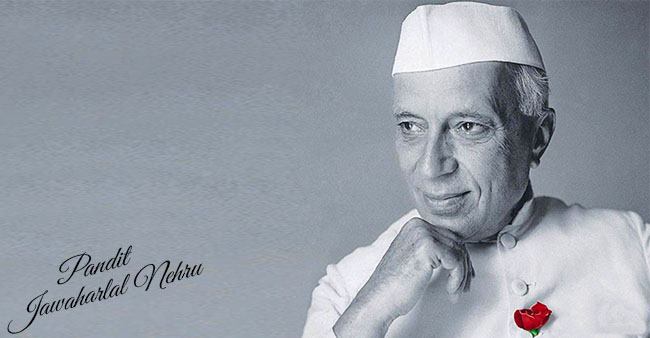 English
English

On the death anniversary of Pandit Jawaharlal Nehru, Dynamite News brings to you some interesting facts about India’s first Prime Minister.

[{"caption":"Pandit Jawaharlal Nehru's Education","description":"Nehru received most of his primary education at home as he was home schooled till he turned 15, Pandit Jawaharlal Nehru went to Trinity College, Cambridge in October 1907 and graduated with an honors degree in natural science in 1910.","image":"2021\/05\/27\/tribute-to-pandit-jawaharlal-nehru-10-lesser-known-facts-about-indias-first-prime-minister\/01M82pE4nXtq9vzY4gSdxtWkzw2F0ajZEW5xKG8E.jpg"},{"caption":"Pandit Jawaharlal Nehru's career as a advocate","description":"In August 1912, after returning to India, Nehru enrolled himself as an advocate of the Allahabad High Court and tried to settle down as a barrister.","image":"2021\/05\/27\/tribute-to-pandit-jawaharlal-nehru-10-lesser-known-facts-about-indias-first-prime-minister\/0pZwE5zdiC2OXliKu3g9M8nylA8s08CC1lUXEmG2.jpg"},{"caption":"Pandit Jawaharlal Nehru was imprisoned 9 times","description":"Pandit Nehru was imprisoned 9 times during his fight for India's freedom. Reportedly, he spent 3,259 days in prisonduring his fight for India's freedom.","image":"2021\/05\/27\/tribute-to-pandit-jawaharlal-nehru-10-lesser-known-facts-about-indias-first-prime-minister\/dp3uTzEDeZypnJLKcvtZNK9fzBNtHa57XP1ataG5.jpg"},{"caption":"4 attempts made to assassinate Pandit Nehru","description":"As many as 4 attempts were made to assassinate Pandit Nehru. The first one was during the partition of India and three others in 1955, 1956 and 1961.","image":"2021\/05\/27\/tribute-to-pandit-jawaharlal-nehru-10-lesser-known-facts-about-indias-first-prime-minister\/qx2Voq3hgrrQl3pom4PIIfaIAwUehEhMyc7NAS6C.jpg"},{"caption":"Letters from a Father to His Daughter","description":"Nehru wrote 30 letters to his daughter Indira Gandhi when she was just 10-years-old. The letters were later compiled and published as a book titled 'Letters from a Father to His Daughter'.","image":"2021\/05\/27\/tribute-to-pandit-jawaharlal-nehru-10-lesser-known-facts-about-indias-first-prime-minister\/0I3IdsubEIPEPWkTV2KqqbjuhKptFxaIQ6yvvQtb.jpg"},{"caption":"Pandit Jawaharlal Nehru's autobiography","description":"When he was imprisoned from 1934 to 1935, Nehru wrote his autobiography 'Toward Freedom', which was published in 1936.","image":"2021\/05\/27\/tribute-to-pandit-jawaharlal-nehru-10-lesser-known-facts-about-indias-first-prime-minister\/QpizZthhAPphZ7Osa6Z71k25CX52H1evnNpOMJ5n.jpg"},{"caption":"The idea of Complete National Independence","description":". In 1927, he was the first to give the idea of Complete National Independence and to refrain from all ties that bond Indians from the British Empire including ICS.","image":"2021\/05\/27\/tribute-to-pandit-jawaharlal-nehru-10-lesser-known-facts-about-indias-first-prime-minister\/ab7zQz0oKXp3rSyN31J55MVBDh6WX12yATMi3iRD.jpg"},{"caption":"Architect of Modern India","description":"Pandit Jawaharlal Nehru is also called as the Architect of Modern India.","image":"2021\/05\/27\/tribute-to-pandit-jawaharlal-nehru-10-lesser-known-facts-about-indias-first-prime-minister\/aSUm5m3W1Yk64Q8TakWJUVmkr8cnalnqYD9ygXfW.jpg"},{"caption":"Pandit Jawaharlal Nehru","description":"Nehru won 11 nominations for the Nobel Peace Prize from 1950 to 1955 for upholding peace in the Indian subcontinent.","image":"2021\/05\/27\/tribute-to-pandit-jawaharlal-nehru-10-lesser-known-facts-about-indias-first-prime-minister\/RdtJtFqMsuJbtA6i4F4GIfDdLmEXjTiyISq3gG0E.jpg"},{"caption":"Pandit Jawaharlal Nehru passes away","description":"Nehru passed away after a massive heart attack on May 27, 1964. It is said that his deteriorating health was an aftermath of the 1962 Sino-India war which shocked him greatly. In 1954, Nehru and Chinese Premier Zhou Enlai had signed the Panchsheel agreement (five principles for peaceful co-existence), and the war, prompted by events such as India granting asylum to the Dalai Lama, felt like a 'betrayal of trust' for him. 1.5 million people had gathered in the streets of Delhi on the following day to mourn Nehru.","image":"2021\/05\/27\/tribute-to-pandit-jawaharlal-nehru-10-lesser-known-facts-about-indias-first-prime-minister\/uB8hjV9CypLfge0Gfvd7zOONIz8LVbLxffn4dp5t.jpg"}]